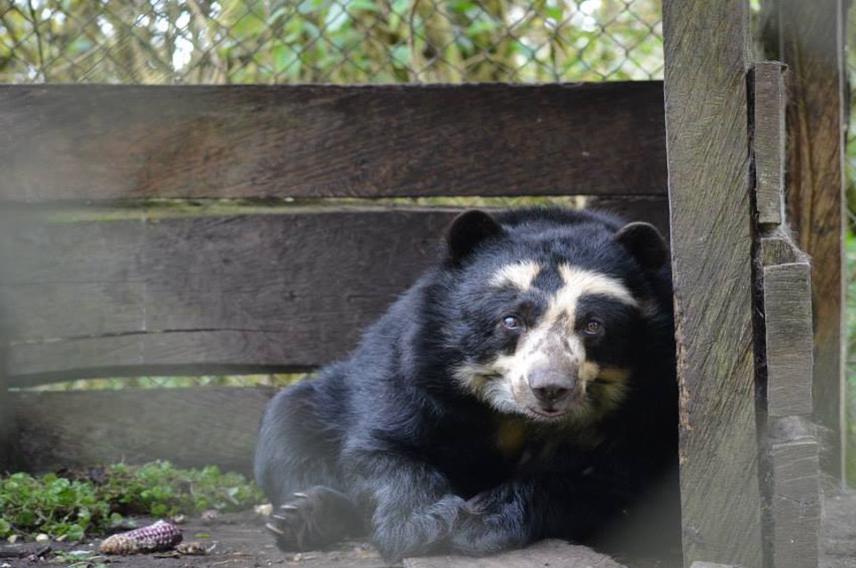Andrea Del Pilar Borbon Garcia
The goal of this study is to determine how habitat degradation and captivity maintenance modify the healthy gut microbiota of Andean bears.

Andean Bear.
The Andean Bear is an endemic species of the tropical Andes and is catalogued as Vulnerable by the IUCN. The populations are under strong pressure by habitat degradation and illegal hunting. This species has an important role as seed disperser and as an umbrella species. Human-bear conflict and habitat degradation have caused the decrease of Andean bear populations. Usually occurs as retaliatory killing because of cattle predation by bears as a consequence of population isolation. Contrastingly, they largely consume plants and livestock predation is rare and opportunistic. Despite all, previous findings with skull morpho-mechanics show little adaptations for herbivory. Recent studies on gut microbiota show that energy uptake from diet in vertebrates is possible because of gut microbial fermentation, and the one for herbivores is specialized and well differentiated from carnivores and omnivores. Since herbivore mammals do not carry enzymes for fibre degradation, it is necessary the establishment of symbiosis with cellulolytic microorganisms in their gastrointestinal (GI) tract to help them with their nutritional needs. Because of this, it is necessary to have high resolution approaches which generate enough information to work with local communities and demonstrate Andean bears are more adapted to be herbivores instead of cattle predators. Moreover, since bears lack of physiological adaptations for herbivory, (i.e. chambered stomach, specialized small intestine, cecum and colon), the microbial composition of the GI tract greatly influences the health and nutritional status of the host, hence, is very sensitive to dietary changes under disturbed habitats which can lead to diseases development.
Otherwise, ex-situ conservation in captivity comprises a big challenge because of the diseases that animals usually develop, as alopecia; immune-related and gastrointestinal diseases, among others. Given the close link between gut microbiota and immunity, it is suitable to use gut microbiota analyses as bio-indicator to determine individual’s health, diseases, and susceptibility in different environments. The main goal of this study is to characterize the gut microbiota of Andean bears, in order to determine how habitat degradation modifies their healthy gut microbiota. Our results will guide nutritional management and quality assessment in its habitat. This work attempts to use new molecular techniques with ecological information to address a conservation issue.